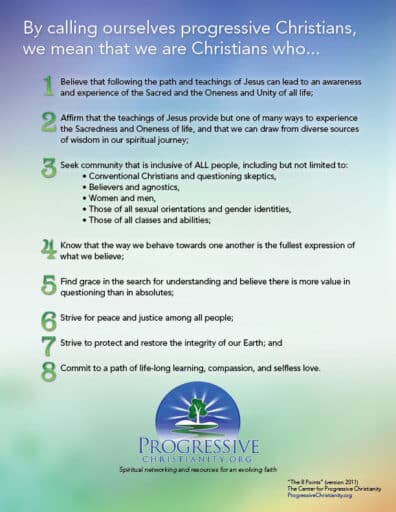The perils of progressive Christianity that must be avoided
Introduction to Progressive Christianity
Progressive Christianity is a movement that exists within the broader realm of Christendom and places a strong emphasis on advocating for social justice and environmentalism. This article will explore the hidden dangers of progressive Christianity, delving into the potential pitfalls that can arise when biblical authority and essential Christian doctrines are compromised in the pursuit of social and cultural alignment.
Beloved, when I gave all diligence to write unto you of the common salvation, it was needful for me to write unto you, and exhort you that ye should earnestly contend for the faith which was once delivered unto the saints. For there are certain men crept in unawares, who were before of old ordained to this condemnation, ungodly men, turning the grace of our God into lasciviousness, and denying the only Lord God, and our Lord Jesus Christ.
Jude 1:3-4
Due to the wide range of beliefs and perspectives within Progressive Christianity contradicting the Bible, it is easy to classify the movement as heretical and apostate. It is crucial to carefully assess each claim and belief in light of the teachings of the Word of God, rejecting anything that does not align with Scripture (Acts 17:11.)
Related Topic: Heresy And Apostasy
Understanding the Dangers of Progressive Christianity

Progressive Christianity denies the Bible as the final authority. As a result, most elements of Progressive Christianity are contradictory to a biblical worldview.
- Adherents of this movement do not believe the inerrancy of Scripture or view the Bible as the literal Word of God.
- Progressive Christianity places greater importance on collective salvation than the biblical idea of personal salvation.
- Progressive Christians focus on being politically correct, rather then being biblically correct.
The broad spectrum of beliefs associated with this term makes it difficult to arrive at a definitive conclusion regarding its alignment with biblical teachings. This requires a careful examination of the teachings and practices of progressive Christianity
Consequently, many of the viewpoints held by progressive Christians do not align with biblical principles. For this reason, it is essential to exercise discernment when evaluating specific claims or beliefs within the Progressive Christianity movement.
Related Topic: The Significance Of The Bible
The dangerous influence of progressive Christianity
Progressive Christianity veers away from the foundational principles of the Christian faith. This shift can have far-reaching consequences, both for individual believers and the church. Some of the key dangers of progressive Christianity include:
- The Impact of Progressive Christianity on Biblical Authority: Progressive Christianity may downplay or reinterpret the authority and inerrancy of the Bible, leading to a weakening of its role as the infallible Word of God. This can result in a selective approach to Scripture, where certain passages are emphasized or dismissed based on personal preferences or cultural biases.
- Distortions of Essential Christian Doctrines: Progressive Christianity may seek to redefine or reinterpret core Christian beliefs, such as the nature of God, the divinity of Christ, the necessity of salvation, and the reality of sin and redemption. These distortions can undermine the essential tenets of the Christian faith, rendering it unrecognizable from
- The Emphasis on Social Justice: While the pursuit of social justice and the alleviation of human suffering are important Christian values, progressive Christianity may prioritize these concerns over the core message of the Gospel. This can result in a disproportionate focus on political and social activism, overshadowing the essential spiritual transformation that is at the heart of the Christian faith.
- The Risks of Syncretism and Spiritual Compromise: Progressive Christianity may incorporate elements from other belief systems, philosophies, or spiritual traditions in an effort to be more inclusive and relevant. This syncretistic approach can lead to a blurring of the distinct identity of Christianity, as it becomes intermingled with incompatible beliefs and practices.
- The Potential for Theological Confusion and Uncertainty: The fluid and constantly evolving nature of progressive Christianity can create a sense of theological confusion and uncertainty among believers. As traditional doctrines are reinterpreted or abandoned, believers may struggle to find a solid foundation for their faith, leading to a weakening of their spiritual convictions.
Progressive Christianity Degrades the authority of the Scriptures.
All scripture is given by inspiration of God, and is profitable for doctrine, for reproof, for correction, for instruction in righteousness:
2 Timothy 3:16
One significant distinction between Progressive Christianity and Historic Christianity is their perspectives on the Bible. Historic Christianity traditionally regards the Bible as the authoritative Word of God. Conversely, Progressive Christianity prioritizes personal beliefs over biblical mandates, resulting in a diminished view of the Bible.
One of the ways they degrade the authority of the Scriptures is by focusing on opinions and feelings rather than the Scriptures. This attitude concerning the Bible is far from historical Christianity, which treats the Bible as the final authority for faith and practice.
Progressive Christianity often emphasizes personal experiences, feelings, and opinions and elevates them above the Scriptures. As the Bible loses its status as the definitive word of God, individuals’ subjective feelings become the ultimate authority for matters of faith and practice.
Progressive Christianity attempts to make fundamental doctrines politically correct.
Study to shew thyself approved unto God, a workman that needeth not to be ashamed, rightly dividing the word of truth.
2 Timothy 2:15
Progressive Christians often reinterprets and redefines essential Christian doctrines, such as biblical inspiration, inerrancy, and authority. Moral issues like homosexuality and abortion and cardinal doctrines like the virgin conception and bodily resurrection of Christ are subject to reinterpretation.
The only consistent principle within Progressive Christianity is the rejection of unquestioned traditions, dogma, and doctrine. They are all subject to questioning and redefinition.
While Progressive Christians may claim to affirm doctrines such as biblical inspiration, inerrancy, and authority, they often redefine these terms to fit their perspectives. The redefinition of fundamental doctrines is because of political correctness. Progressive Christians seek to please man at the cost of offending God.
Progressive Christianity Teaches works-based salvation.
For there are certain men crept in unawares, who were before of old ordained to this condemnation, ungodly men, turning the grace of our God into lasciviousness, and denying the only Lord God, and our Lord Jesus Christ.
Jude 1:4
The central message of Christianity, the gospel, undergoes a shift within Progressive Christianity. The focus moves from recognizing sin and the need for redemption to emphasizing social justice.
While caring for the less fortunate and advocating for the oppressed are essential aspects of the Christian faith, the core message of Christianity remains that Jesus died for our sins, was buried, and resurrected to reconcile us to God. This message brings true freedom to the oppressed.
However, many Progressive Christians find the concept of God willingly sacrificing His Son on the cross uncomfortable or objectionable. Some even refer to it as “cosmic child abuse. As a result, blood atonement is downplayed or denied in favor of prioritizing social justice and good works.
Conclusion
In conclusion, the dangers of progressive Christianity pose a significant challenge for believers. Progressive Christianity incorporates the use of Scripture, utilizes Christian terminology, and asserts adherence to the teachings of Jesus. Despite its outward resemblance to authentic Christianity, it resembles counterfeit doctrine rather than the traditional Christian gospel. In essence, the collective beliefs upheld by this movement amount to falsified truths.








